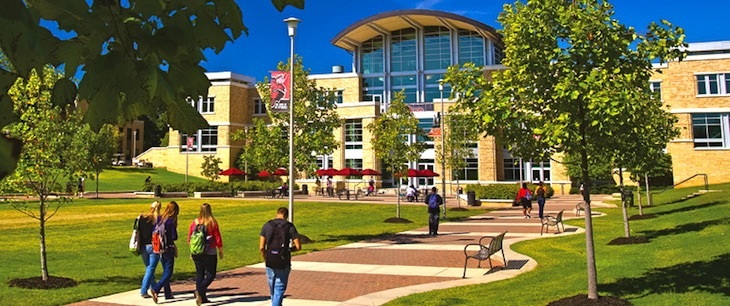First confirmed COVID death in Jonesboro; ASU likely to have tuition freeze
by April 15, 2020 4:54 pm 5,204 views

Arkansas State University is considering a tuition and fee freeze for the upcoming school year and the first confirmed death from COVID-19 in Jonesboro was reported Wednesday (April 15). Craighead County Judge Marvin Day told KAIT the person who died was over the age of 65, but no other details about the person have been made public.
As of Wednesday, there 116 reported cases in Crittenden County, the second most in any county in the state, according to the Arkansas Department of Health. St. Francis County, which borders Crittenden was second in the region with 45 reported cases, and Craighead County with 36 cases is third in NEA.
As the pandemic deepens, Arkansas State University Chancellor Kelly Damphousse said the state’s second largest university is facing tough financial realities. He said he will not recommend any tuition or fees hikes during the coming school year, and he expects a significant drop in state funding next year.
“These are challenging times for higher education (both at the institutional level and at the individual level) as we all struggle in our own worlds to adapt to the new normal of COVID-19 response,” he said.
When the federal government pushed back the tax deadline to July, it caused a $350 million shortfall in the state budget, which caused a $2.35 million shortfall in ASU’s budget, he said. That has been off-set by reductions in travel, supplies, reduced university operations, and other reduced expenses, he said. Administrators are in the process of developing a budget for the upcoming year, and it will be based on 90% of what the budget was in 2020. The complete budget proposal should be done by early May, he added. Damphousse didn’t elaborate on any potential budget cuts.
“We will follow our existing budget cut protocols when making these changes (e.g., all divisions will participate in any reductions, focus on protecting currently filled employee lines, and curtailing non-essential travel and other expenditures),” he said.
The federal government has allocated $9.2 million to ASU to help offset some of the costs to the university related to its COVID-19 response. About $4.6 million of those funds are reserved to provide students with emergency financial aid grants to help cover expenses related to the disruption of campus operations due to the disease, he said. The remaining $4.6 million could be used to help cover some, though not all, of the next school year shortfall, but ASU is still two weeks away from knowing how that money may be spent, he said.
Despite the problems, the chancellor stressed that classes are still ongoing and the campus is still open, even if its in a limited capacity.
“Our essential personnel are reporting to campus to keep operations running, while the rest of our staff members continue to work from home to support our physical distancing policy. Our faculty members and instructors have made an unprecedented shift to all-online instruction in a previously unthinkable timeframe. Our students have adjusted to a historic change in their lives,” he said.
